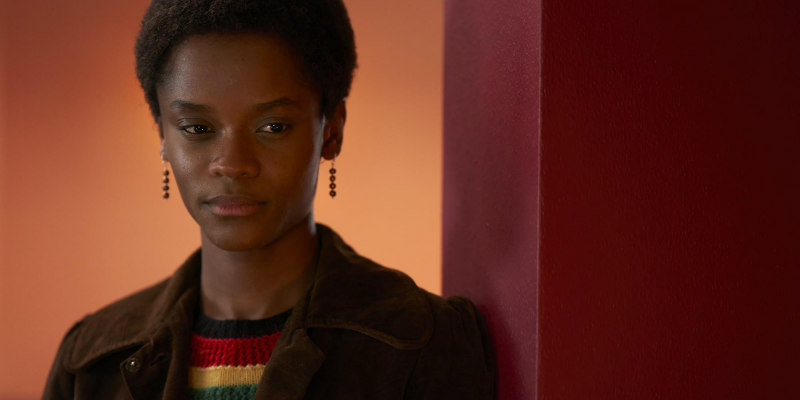
Review by
Musanna Ahmed
Directed by: Steve McQueen
Starring: Shaun Parkes, Letitia Wright, Malachi Kirby, Rochenda Sandall, Jack
Lowden, Jodhi May
If the remaining four films of Steve McQueen’s 'Small Axe'
anthology are as good as Mangrove, we’re in for a very special collection of work to watch on BBC this
winter.
The miniseries, entirely directed by McQueen and co-written by him
alongside Alastair Siddons (Tomb Raider,
Trespass Against Us) and novelist Courttia Newland, is a dramatisation of several
true stories from London’s West Indian community during the '70s and
'80s. As much as these films are about the past, they shine a light on
the present too, especially one such as Mangrove, which revolves around police misconduct and the pursuit for justice.

This rousing drama essays the story of the Mangrove Nine, activists who
took to the streets to protest against the unwarranted police raids of
their community hub, the Mangrove restaurant owned by Frank Crichlow (Shaun Parkes), who is the closest to a central character here. The restaurant is
where local Caribbean immigrants, families and activists, including the
British Black Panthers, seek to congregate and enjoy themselves over
good food, company and music. A warm outdoors BBQ scene displays the
sort of joyful community spirit at the Mangrove.
On the opposite side of Frank is another Frank, whose surname is Pulley
and prefix is PC. This bitter constable is played by
Sam Spruell (you know his face, he’s the guy from that thing) in
a pointedly menacing turn. Pulley heads up the coppers who have a
problem with Crichlow, admonishing the Mangrove boss on false charges
such as selling alcohol without a license. Sometimes, it feels plain
unrealistic with how obviously fraudulent the cops are in the face of
the law, when summoned in court. But to think it wasn’t actually this
bad would be too idealistic.

The violent raid scenes occur frequently and, even when we should expect
them, they’re always shocking. I would attribute the taut atmosphere to
McQueen’s typically superb visual command (there’s a haunting shot of a
colander rolling on the floor besides kitchen debris) and his commitment
to immersing us in the milieu. You intimately understand the restaurant,
right down to the specificity of the curries.
Following an exacerbation of relations, the Mangrove Nine lead a protest
on the streets and eventually wind up fighting a hard trial where
they’re accused of inciting a riot. The film plays like two separate
films due to its structure, as it neatly situates the first and second
half in the streets of Notting Hill and the courtroom, respectively. A
few days removed from seeing Aaron Sorkin’s
The Trial of the Chicago 7, I can say that I prefer McQueen’s chronological storytelling. If
McQueen chose to employ a similar style to Sorkin, he would have risked
undermining his brutally factual film with the artificial twists of the
courtroom drama genre.

Parkes delivers one of the best performances of this sparse cinematic
year, fiercely capturing the unbreakable spirit of Mr Crichlow.
Letitia Wright, Rochenda Sandall and Malachi Kirby are all
astonishingly good as the community’s leading activists: Altheia
Jones-LeCointe, Barbara Beese and Darcus Howe.
Jack Lowden provides some strangely warm humour as their defence
barrister. The stunning amalgam of excellent performances, writing,
cinematography and music (shout-out to Mica Levi) is generated by
the hand of one of Britain’s greatest filmmakers. I can’t wait to see
the next one.

Mangrove screens on BBC One on November 15th and will subsequently be available on BBC iPlayer.

